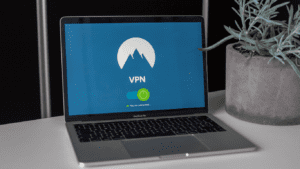In today’s fast-paced business environment, managing deals efficiently is critical to ensuring a company’s success. Deal management software has become an essential tool for sales teams, enabling them to streamline processes, close deals faster, and ultimately drive revenue growth. Whether you are a small business owner or part of a large sales team, understanding how to leverage deal management software can give you a competitive edge.
In this comprehensive guide, we will dive deep into what deal management software is, why it’s essential, and how to choose the right solution for your business. We will also explore the features, benefits, and best practices associated with deal management software to help you make an informed decision.
What is Deal Management Software?
Deal management software is a specialized tool designed to assist sales teams in managing the entire lifecycle of a deal. From prospecting and qualification to negotiation and closing, this software provides a centralized platform to track, manage, and analyze sales deals. It helps sales professionals keep tabs on every aspect of their deals, ensuring that nothing falls through the cracks.
Deal management software typically includes features like pipeline management, deal tracking, communication tools, analytics, and integration with other sales tools like CRM (Customer Relationship Management) systems. By providing real-time insights and automating various aspects of the sales process, deal management software empowers sales teams to make data-driven decisions and optimize their performance.
Why is Deal Management Software Essential?
a. Streamlined Sales Processes:
One of the primary benefits of deal management software is that it streamlines the sales process. By centralizing all deal-related information in one place, it reduces the time spent on manual tasks and minimizes the risk of errors.
b. Enhanced Collaboration:
Sales teams often work together on deals, and deal management software facilitates better collaboration by providing a shared platform where team members can access and update deal information in real-time.
c. Improved Deal Visibility:
With deal management software, sales managers can easily monitor the progress of deals and identify potential bottlenecks. This visibility allows for more effective decision-making and ensures that deals are moving through the pipeline efficiently.
d. Data-Driven Insights:
Deal management software provides valuable analytics and reporting features that enable sales teams to analyze their performance, identify trends, and make informed decisions. These insights can help optimize sales strategies and improve overall deal success rates.
e. Better Customer Experience:
By keeping track of all interactions and communications with prospects, deal management software ensures that sales teams can provide a personalized and consistent customer experience. This, in turn, increases the likelihood of closing deals and building long-term customer relationships.
Key Features of Deal Management Software
When evaluating deal management software, it’s important to consider the key features that will best support your sales team’s needs. Here are some of the most important features to look for:
a. Pipeline Management:
Pipeline management is a core feature of deal management software. It allows sales teams to visualize and manage their sales pipeline, track deals at various stages, and forecast future revenue. A well-organized pipeline ensures that sales reps are focusing on the right deals and helps prevent deals from slipping through the cracks.
b. Deal Tracking:
Deal tracking features enable sales teams to monitor the status of each deal, including important details like deal value, stage, and close date. This information is critical for maintaining an accurate pipeline and ensuring that sales reps are staying on top of their deals.
c. Communication Tools:
Effective communication is essential for closing deals. Deal management software often includes built-in communication tools, such as email integration, messaging, and collaboration features, to facilitate communication between sales reps and prospects.
d.. Analytics and Reporting:
Analytics and reporting features provide sales teams with valuable insights into their performance. These features allow sales managers to track key metrics like win rates, average deal size, and sales cycle length, enabling them to make data-driven decisions and improve their sales strategies.
e. Integration with CRM:
Integration with your existing CRM system is crucial for seamless data flow between tools. This integration ensures that all customer information is up-to-date and accessible, allowing sales teams to have a complete view of each prospect and deal.
f. Automation:
Automation features help streamline repetitive tasks, such as sending follow-up emails, updating deal stages, and generating reports. By automating these tasks, deal management software frees up time for sales reps to focus on higher-value activities.
g. Customization:
Every sales team has unique processes and workflows, so it’s important to choose deal management software that offers customization options. This includes the ability to customize deal stages, fields, and reports to match your specific sales process.
Benefits of Using Deal Management Software
Implementing deal management software can bring numerous benefits to your sales team and overall business operations. Here are some of the key advantages:
a. Increased Efficiency:
By automating routine tasks and providing a centralized platform for managing deals, deal management software significantly increases the efficiency of your sales team. Sales reps can spend more time selling and less time on administrative tasks.
b. Better Deal Outcomes:
With better visibility into the sales pipeline and more accurate data, sales teams can make more informed decisions and focus on the deals with the highest likelihood of closing. This leads to better deal outcomes and higher win rates.
c. Shorter Sales Cycles:
Deal management software helps streamline the sales process by providing tools for tracking and managing deals more effectively. This can lead to shorter sales cycles, as sales reps can identify and address potential obstacles more quickly.
d. Improved Forecasting:
Accurate forecasting is critical for any sales team. Deal management software provides the data and insights needed to create more accurate sales forecasts, helping sales managers set realistic targets and allocate resources effectively.
e. Enhanced Collaboration:
Sales teams often need to collaborate on deals, and these management software makes this easier by providing a shared platform where team members can access and update deal information in real-time. This leads to better communication and a more cohesive sales effort.
f. Greater Scalability:
As your business grows, so does the complexity of managing deals. This management software is scalable and can grow with your business, ensuring that you can continue to manage your deals effectively as your sales volume increases.
How to Choose the Right Deal Management Software
With so many deal management software options available, choosing the right one for your business can be challenging. Here are some factors to consider when evaluating different solutions:
a. Business Size and Needs: The size of your business and the complexity of your sales process will influence the type of deal management software you need. Small businesses may require a more straightforward solution, while larger enterprises may need advanced features and customization options.
b. Ease of Use: The software should be user-friendly and easy to navigate. If the tool is too complicated, your sales team may be reluctant to use it, which could reduce its effectiveness.
c. Integration Capabilities: Ensure that these management software integrates seamlessly with your existing CRM system and other sales tools. This will help ensure that all your data is centralized and that your sales team can work more efficiently.
d. Customization Options: Look for software that allows you to customize deal stages, fields, and reports to match your sales process. This will help ensure that the software meets your specific needs.
e. Customer Support: Good customer support is essential when implementing new software. Look for a provider that offers comprehensive support, including training, onboarding, and ongoing assistance.
f. Pricing: Pricing is an important consideration when choosing these management software. Be sure to evaluate the cost of the software relative to the features and benefits it offers. Consider whether the pricing model is a good fit for your budget and whether there are any hidden costs.
g. Trial Period: Many software providers offer a free trial period. Take advantage of this to test the software and see if it meets your needs before making a commitment.
Top Deal Management Software Solutions
To help you get started, here are some of the top management software solutions currently available:
1. HubSpot Sales Hub:
HubSpot Sales Hub is a powerful and user-friendly deal management tool that integrates seamlessly with HubSpot’s CRM. It offers a range of features, including pipeline management, automation, and analytics, making it a great choice for small to medium-sized businesses.
2. Pipedrive:
Pipedrive is known for its intuitive interface and robust deal tracking capabilities. It offers customizable pipelines, automation features, and integration with a wide range of other tools, making it a popular choice for sales teams of all sizes.
3. Salesforce Sales Cloud:
Salesforce is one of the most well-known CRM and deal management platforms. It offers a comprehensive set of features, including advanced analytics, AI-driven insights, and extensive customization options, making it ideal for larger enterprises.
4. Zoho CRM:
Zoho CRM offers an affordable and feature-rich deal management solution. It includes pipeline management, automation, and AI-powered insights, making it a great option for businesses looking for a cost-effective solution.
5. Monday.com:
While Monday.com is primarily known as a project management tool, it also offers robust deal management features. Its customizable pipelines, automation options, and integration capabilities make it a versatile choice for sales teams.
Best Practices for Using Deal Management Software
To get the most out of your deal management software, consider implementing the following best practices:
a. Regularly Update Deal Information: Ensure that your sales team is consistently updating deal information in the software. This will help maintain an accurate pipeline and ensure that everyone is working with the most up-to-date data.
b. Set Clear Deal Stages: Define clear and consistent deal stages that align with your sales process. This will help sales reps understand where each deal stands and what actions are needed to move it forward.
c. Use Automation to Your Advantage: Take advantage of the automation features in your management software to streamline repetitive tasks and free up time for more important activities.
d. Analyze Performance Regularly: Use the analytics and reporting features to regularly review your sales team’s performance. This will help you identify trends, spot potential issues, and make data-driven decisions to improve your sales strategy.
e. Provide Training and Support: Ensure that your sales team is properly trained on how to use these management software. Provide ongoing support to address any questions or issues that arise.
Integrate with Other Tools: Make sure your management software is integrated with your CRM and other sales tools. This will help ensure that all your data is centralized and that your sales team can work more efficiently.
Conclusion
Deal management software is an invaluable tool for sales teams looking to streamline their processes, improve collaboration, and close deals more effectively. By providing a centralized platform for managing deals, tracking performance, and automating routine tasks, this software empowers sales teams to work more efficiently and make data-driven decisions.
When choosing these management software, it’s important to consider your business size, needs, and budget, as well as the software’s ease of use, integration capabilities, and customization options. By following best practices and regularly analyzing your performance, you can maximize the benefits of these management software and drive your sales success.
FAQs for Deal Management Software
1. What is deal management software?
It is a tool designed to help sales teams manage the entire lifecycle of a deal, from prospecting to closing. It centralizes deal information, tracks progress, and provides analytics to optimize sales processes.
2. Why is deal management software important?
It is essential for streamlining sales processes, improving collaboration, enhancing deal visibility, and providing data-driven insights. It helps sales teams close deals faster and more effectively.
3. What features should I look for in deal management software?
Key features to look for include pipeline management, deal tracking, communication tools, analytics and reporting, CRM integration, automation, and customization options.
4. How does deal management software improve sales efficiency?
By automating routine tasks, centralizing deal information, and providing real-time insights, it significantly boosts sales efficiency, allowing sales reps to focus on high-value activities.
5. Can these management software integrate with my existing CRM?
Yes, most of the solutions offer integration with popular CRM systems, ensuring seamless data flow and a unified view of customer interactions.
6. How do I choose the right deal management software for my business?
Consider your business size, needs, budget, ease of use, integration capabilities, and customization options. It’s also important to look for software that offers a free trial to evaluate its fit for your team.
7. What are the benefits of using these management software?
The benefits include increased efficiency, better deal outcomes, shorter sales cycles, improved forecasting, enhanced collaboration, and greater scalability as your business grows.
8. Is this management software suitable for small businesses?
Yes, there are management software options tailored to the needs of small businesses, offering essential features at an affordable price point.
9. How can I ensure my sales team adopts this management software effectively?
Provide thorough training, ongoing support, and ensure the software is easy to use. Regularly updating deal information and leveraging automation features can also drive adoption.
10. Can these management software help with sales forecasting?
Yes, it provides analytics and reporting tools that help sales teams create more accurate sales forecasts, enabling better decision-making and resource allocation.




